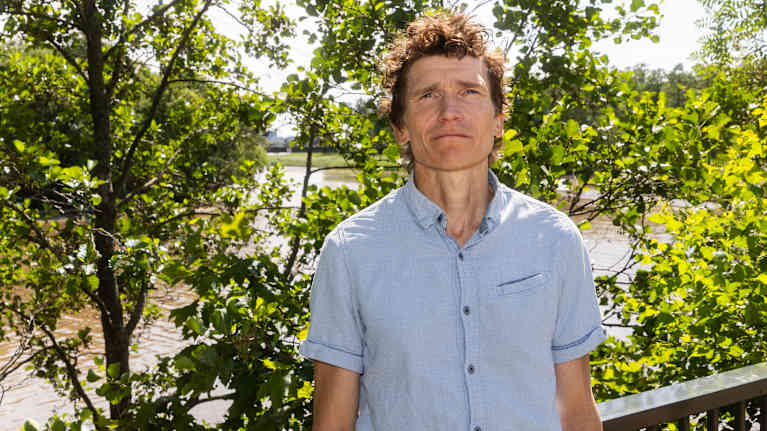Sonja Gustafsson, a dual-degree holder in economics and engineering with years of international experience, hasn’t landed a job since being laid off in spring 2024 during company-wide restructuring talks.
Despite having worked for the EU in Brussels and in various roles in Finland, she now finds herself in the same situation as tens of thousands of other highly qualified jobseekers — struggling to get hired in a stagnant labour market.
“Before my unemployment, I was offered a couple of managerial positions,” Gustafsson told Yle. “But now, nothing has come through.”
She’s now applying for jobs abroad as well.
“Having lived outside Finland before and knowing several languages, it might just be that my next job isn’t in Finland,” she added.
Unemployment duration at all-time high
Gustafsson is far from alone. This May marked a bleak milestone: the average Finnish jobseeker had been unemployed for 70 weeks — the highest figure in national records going back to 2007. The age gap is also stark: 20–24-year-olds were unemployed for an average of 34 weeks, while those aged 60–64 faced job searches lasting over 100 weeks.
Additionally, the number of people unemployed for over two years is now at an eight-year high. The share of people out of work for more than five years has also reached a record level.
“It’s somewhat reassuring to know others are in the same situation,” Gustafsson says. “It would be much worse if I were the only one who couldn’t find work while everyone else was landing jobs.”
She’s also critical of recent changes to Finland’s unemployment benefit system, particularly the removal of the so-called exempt income allowance, which previously enabled people to earn small amounts without deductions to their benefits.
“Now there’s no point in doing small freelance jobs. The system doesn’t support people who are trying to get by in a difficult situation,” she says. “This idea of incentives isn’t really working.”
Economist: Not enough job openings
Antti Ilvonen, Senior Analyst at Danske Bank, sees the trend as serious but not beyond repair.
“There are fewer new spells of unemployment than a year ago, but people are staying unemployed longer. There just aren’t enough job openings,” he explained.
Ilvonen pointed to Finland’s broader economic weakness as the primary reason why firms are reluctant to hire. Labour markets tend to lag behind economic recovery, and it will take time for hiring to resume once the economy improves.

Open image viewer
“Consumer confidence surveys show small signs of a slight strengthening of confidence in the improving economic situation early in the year,” Antti Iivonen told Yle. Image: Danske Bank
“The ratio of job openings to jobseekers is the lowest it’s been since the financial crisis. The situation is reminiscent of the post-euro crisis years,” he says.
Ilvonen believes that the government’s long-term approach of strengthening incentives to work is valid, but ineffective in the current job market.
“Right now, the problem isn’t a lack of willingness to work. The problem is that there just aren’t any jobs.”
He also warned that long-term unemployment saps confidence in the future.
“When people fear their unemployment will drag on, they spend less and save more, which in turn slows the recovery.”
He sees hope in consumer-driven growth, improving purchasing power and declining interest rates.
“But it’ll take time.”
“We need boldness now”
Kalle Mäkinen, an experienced specialist with over 20 years in start-ups, corporates and transformation projects, is also navigating the difficult job market while developing a potential business of his own.
“I’ve got two tracks. One is landing an interesting full-time job. The other is building a business,” he said.
The job search hasn’t been easy.

Open image viewer
– I have been actively looking for a job, as actively as is reasonable at the moment. There are very few jobs available, so you could say that the bazaar has pretty much run out of fruit,” Kalle Mäkinen told Yle. Image: Esa Syväkuru / Yle
“There are few positions and hundreds of applicants. On LinkedIn, it’s easy to see that some jobs hit 100 applicants quickly — and that’s just the visible number.”
Mäkinen believes companies are holding back due to economic uncertainty.
“Many companies are still waiting before investing or hiring. We need more signals that encourage risk-taking.”
Nevertheless, he remains optimistic. “A year from now, I believe I’ll either have launched a company or joined an exciting network or organisation. There’s a lot happening in Finland’s start-up scene, and the tech shift is opening up new opportunities.”
He also called on Finland’s leadership to act.
“The government and central bank need to focus on restoring confidence. That’s what will kickstart investment and hiring again.”
